
SCANDINAVIAN JOURNAL OF LABORATORY ANIMAL SCIENCE
Scope & Guideline
Empowering Researchers with Critical Insights
Introduction
Aims and Scopes
- Animal Welfare and Ethics:
The journal consistently addresses issues related to the ethical treatment of laboratory animals, emphasizing the importance of welfare standards and humane practices in research. - Innovative Research Methodologies:
There is a strong focus on novel techniques and methodologies in laboratory animal science, including home-cage monitoring and improved handling techniques to enhance animal welfare. - Research Impact and Evaluation:
The journal explores the implications of research practices on laboratory animals, including project evaluations and harmonization efforts across different regions, particularly within Nordic countries. - Health and Anesthesia Studies:
A significant portion of the research is dedicated to understanding the health impacts of various anesthetics and treatments on different animal models, contributing to safer and more effective research practices. - Infectious Disease and Environmental Factors:
The journal includes studies on the effects of environmental factors, such as bedding and feed, on the health and well-being of laboratory animals, highlighting the importance of housing conditions.
Trending and Emerging
- Home-Cage Monitoring Technologies:
There is a growing interest in home-cage monitoring as a method to assess animal behavior and welfare, reflecting a trend towards more naturalistic observation techniques that prioritize the animals' environment. - Impact of COVID-19 on Laboratory Animal Care:
The pandemic's impact on laboratory animal care has emerged as a significant topic, highlighting the need for adaptive practices and resilience in animal research during global crises. - Improvement of Animal Well-Being in Experimental Models:
Research focused on enhancing well-being in specific experimental models, such as Parkinson's disease, indicates an increasing trend towards improving the quality of life for research animals. - Anesthesia and Pain Management Innovations:
There is an upward trend in studies evaluating novel anesthetic combinations and pain management strategies, underlining the importance of minimizing discomfort in laboratory animals. - Environmental Enrichment and Behavioral Studies:
The journal reflects an increasing emphasis on studies related to environmental enrichment and its effects on behavior, showcasing a commitment to improving the living conditions of laboratory animals.
Declining or Waning
- Cloning and Genetic Manipulation Ethics:
Research discussing the moral implications of cloning animals has seen a decrease, possibly due to shifting focus towards more pressing welfare issues or the emergence of more relevant genetic studies. - Basic Physiological Studies:
There has been a noticeable reduction in studies focused solely on basic physiological parameters without direct implications for animal welfare or research methodologies. - Non-invasive Techniques in Animal Handling:
The frequency of studies exploring non-invasive techniques specific to traditional handling methods appears to be waning, as newer, more effective approaches are being adopted.
Similar Journals
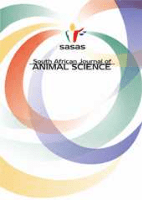
SOUTH AFRICAN JOURNAL OF ANIMAL SCIENCE
Championing scientific discovery in animal sciences.SOUTH AFRICAN JOURNAL OF ANIMAL SCIENCE is a leading scholarly publication dedicated to the dissemination of original research, review articles, and critical insights in the fields of animal science and zoology. Established in 1974, this journal is published by the South African Journal of Animal Sciences and has since become an essential resource for researchers and professionals in the field. The journal, which currently holds a Q3 ranking in Animal Science and Zoology as per Scopus rankings, aims to promote scientific knowledge and innovation in animal husbandry, welfare, nutrition, and breeding practices, with a particular emphasis on the South African context. The journal's rigorous peer-review process ensures high-quality research is shared widely among the academic community. Researchers and students alike will find valuable content and access options that support ongoing education and professional development in this vital area of study. For more information, interested readers can contact the editorial office at PO Box 13884, Hatfield 0028, South Africa.
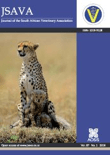
Journal of the South African Veterinary Association
Advancing Veterinary Science Through Open AccessJournal of the South African Veterinary Association is a prominent Open Access journal dedicated to advancing the field of veterinary science since its inception in 1945. Published by MEDPHARM PUBLICATIONS PTY LTD, this journal stands out with an impactful HIndex and a commendable categorization in 2023, ranking Q3 in Medicine (miscellaneous) and Q2 in Veterinary (miscellaneous). With a Scopus rank of 96 out of 194 in the veterinary field, it serves as an essential resource for researchers, veterinary professionals, and students, promoting the dissemination of high-quality research and knowledge. The journal offers a platform for peer-reviewed articles covering diverse topics relevant to veterinary and animal health issues, encouraging expansive dialogue and collaboration within the academic community. Based in Centurion, South Africa, and accessible globally since it adopted an Open Access model in 1997, the journal exemplifies a commitment to accessibility and the sharing of knowledge.
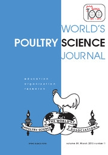
WORLDS POULTRY SCIENCE JOURNAL
Empowering researchers with cutting-edge poultry science insights.Worlds Poultry Science Journal, published by Taylor & Francis Ltd, is a premier academic journal in the field of poultry science, recognized for its significant contributions to advancements in animal science and zoology. With an impressive impact factor and a 2023 ranking placing it in the Q1 category for both Agricultural and Biological Sciences, this journal is highly regarded among researchers and professionals. As an authoritative source for innovative research from 1945 to 2024, it serves as an essential platform for the dissemination of knowledge concerning poultry health, nutrition, genetics, and management strategies. While it currently does not offer open access, the journal caters to a global audience, fostering collaboration and advancing scientific understanding within the poultry industry. Located in the United Kingdom, Worlds Poultry Science Journal is positioned at the forefront of poultry research, making it an invaluable resource for students, scholars, and industry experts alike.

AUSTRAL JOURNAL OF VETERINARY SCIENCES
Advancing Veterinary Knowledge for Global ImpactAUSTRAL JOURNAL OF VETERINARY SCIENCES is a prominent platform for innovative research in the field of veterinary science, published by UNIV AUSTRAL CHILE, FAC CIENCIAS VETERINARIAS. This journal, bearing the ISSN 0719-8000 and E-ISSN 0719-8132, serves as a vital resource for researchers, veterinarians, and students interested in advancing their knowledge in veterinary practices and animal health. With its influence reflected in its Q3 category ranking in the Veterinary (miscellaneous) field, and its Scopus rank of #95 out of 194, the journal highlights a robust commitment to disseminating valuable findings and insights. Between the years 2017 to 2024, it aims to provide open access to significant advancements and discussions in veterinary science, ensuring that vital research is accessible to a global audience. Located in Valdivia, Chile, the journal emphasizes its role in enhancing veterinary scholarship and fostering professional development within the community.

ANTHROZOOS
Exploring the Bonds Between Humans and AnimalsANTHROZOOS is a premier peer-reviewed journal published by Routledge Journals, Taylor & Francis Ltd, focusing on the interdisciplinary study of human-animal interactions. With a commitment to advancing research in the fields of Animal Science, Anthropology, Sociology, Education, and Veterinary Sciences, this journal serves as a vital platform for scholars and practitioners alike to explore the implications of these relationships in a variety of contexts. ANTHROZOOS maintains a significant impact factor and ranks in the upper quartiles in 2023, showcasing its influence in social sciences and animal studies. Designed for an audience ranging from researchers to professionals and students, the journal not only disseminates original research and critical reviews but also provides insights that can help foster a deeper understanding of how human and animal lives intersect. The journal is hosted in the United Kingdom and does not offer Open Access options, making it a valuable resource within academic institutions. By bridging gaps between disciplines, ANTHROZOOS enhances scholarly dialogue and contributes to the growing discourse in human-animal studies.
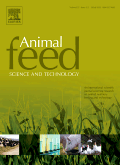
ANIMAL FEED SCIENCE AND TECHNOLOGY
Pioneering Research in Feed Formulation and EfficiencyANIMAL FEED SCIENCE AND TECHNOLOGY, published by Elsevier, is a leading journal in the field of Animal Science and Zoology, with an impressive Q1 quartile ranking and a 93rd percentile standing among its peers. Since its inception in 1976, this journal has been at the forefront of disseminating significant research in animal feed formulation, nutritional efficiency, and the technological advancements influencing feed science. With a reputation for high-impact studies, it serves as an essential resource for researchers, professionals, and students dedicated to the optimization of animal nutrition and welfare. The journal's comprehensive coverage of innovative methodologies and findings continues to shape practices in agricultural and biological sciences. For those keen to keep abreast of pivotal developments in the field, ANIMAL FEED SCIENCE AND TECHNOLOGY remains a crucial outlet for scholarly contributions and discussions.

Medycyna Weterynaryjna-Veterinary Medicine-Science and Practice
Bridging Science and Practice for Enhanced Animal HealthMedycyna Weterynaryjna-Veterinary Medicine-Science and Practice, published by the Polish Society of Veterinary Sciences Editorial Office, stands as a significant contributor to the field of veterinary medicine, focusing on various aspects of animal health and clinical practice. Established in 1945, this journal has continuously evolved, embracing the latest developments in veterinary science, making it an essential resource for researchers, professionals, and students alike. With an ISSN of 0025-8628, it is indexed in Scopus, currently ranked in the 22nd percentile within the Veterinary category, and has accordingly been placed in Q4 of the category quartiles as of 2023, reflecting its niche yet vital contributions to the field. Although currently not open access, the journal’s value is underscored by its dedication to disseminating scientific knowledge and advancements that enhance animal health and welfare in Poland and beyond. The editorial office is located in Lublin, Poland, serving as a hub for veterinary professionals seeking to publish and stay updated on contemporary issues in veterinary practice.

INRAE Productions Animales
Connecting Researchers and Practitioners for a Sustainable FutureINRAE Productions Animales is a prominent journal dedicated to advancing the field of animal production and management, published by the esteemed INRAE (National Research Institute for Agriculture, Food and the Environment). With its commitment to open access, this journal provides a platform for researchers, professionals, and students alike to disseminate high-quality research and innovative practices that address the challenges and advancements in animal production systems. Although the journal’s specific impact factor is currently not available, its contributions are crucial in bridging scientific knowledge with practical application in agriculture. Based in France at 1 rue Pierre-Gilles de Cennes, CS10030, Antony 92761, this journal serves as an essential resource for anyone dedicated to enhancing the sustainability, efficiency, and welfare of livestock production. With a focus on interdisciplinary studies, it aims to foster collaboration among the scientific community, policymakers, and industry stakeholders.
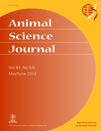
ANIMAL SCIENCE JOURNAL
Bridging Theory and Practice in Animal ResearchAnimal Science Journal, published by Wiley, stands as a premier platform for advancing knowledge in the fields of Agricultural and Biological Sciences, Animal Science and Zoology, and Food Science. With an ISSN of 1344-3941 and an E-ISSN of 1740-0929, this journal not only enjoys a commendable Q2 ranking across multiple categories, reflecting its significance and impact within the academic community, but it also ranks within the top percentiles in terms of Scopus rankings. Operating out of the United Kingdom, the journal covers a broad spectrum of research topics relevant to animal science, encompassing both theoretical insights and practical applications. While it is not an open access journal, it remains an essential resource for researchers and practitioners eager to enhance their understanding of animal sciences, contribute to ongoing debates, and stay abreast of the latest findings from 2003 through 2024. Scholar engagement and innovative research are central to the journal’s objectives, making it an invaluable asset for students, professionals, and academics alike.

Frontiers in Animal Science
Shaping the future of animal research, one study at a time.Frontiers in Animal Science is a pioneering academic journal dedicated to advancing knowledge and innovation in the fields of animal science and zoology. Published by FRONTIERS MEDIA SA in Switzerland, this open-access journal aims to bridge the gap between research and practice by providing a platform for impactful studies and discoveries. With an impressive Q2 classification in animal science and zoology for 2023, it ranks #222 out of 490 journals within the Scopus database, placing it within the 54th percentile of academic journals in its category. Since its inception in 2020, Frontiers in Animal Science has fostered interdisciplinary collaboration and innovation, encouraging researchers, professionals, and students alike to share their work and insights. By facilitating unrestricted access to quality research, this journal plays a crucial role in shaping the future of animal science and enhancing our understanding of animal biology and welfare.